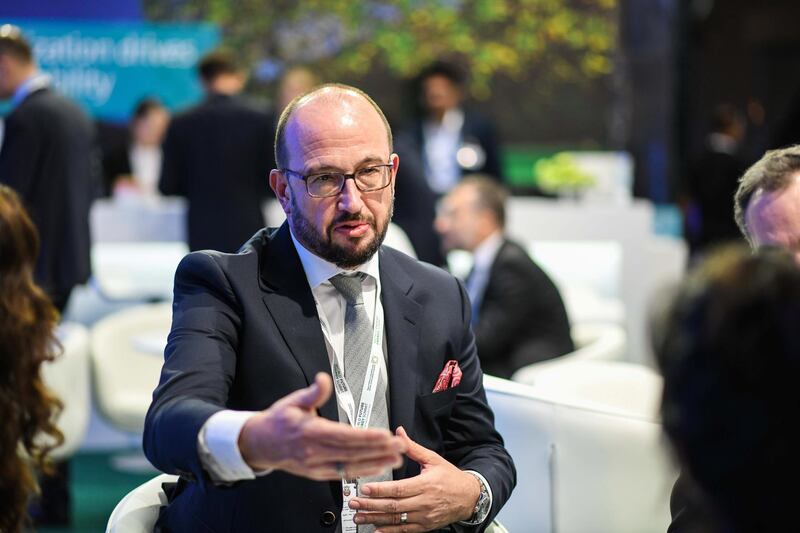German industrial giant Siemens expects increased growth in its Middle East portfolio from Iraq’s rehabilitation efforts in the power sector, even as it looks at an expanded partnerships with Abu Dhabi state fund Mubadala, according to its regional chief executive.
"We've signed an MoU [memorandum of understanding] to develop an IPP [independent power producer] power station, which Siemens is investing with an Iraqi investor, so Iraq, the reconstruction of the country will play a big role in our growth scenarios. Similarly also, hopefully soon Syria," Dietmar Siersdorfer told The National in an interview in Abu Dhabi.
Figures for Iraq's reconstruction vary, with one preliminary World Bank assessment pegging it at almost $150bn. Rebuilding the power sector remains a priority for the federal government in Baghdad, as acute power shortages during searing summer temperatures have led to widespread protests in the past.
Siemens signed contracts worth “multi-million euros” with the Iraqi energy ministry in November to maintain and upgrade power generating units across stations in South Basra, Salah El Deen, Middle Region and the Middle Euphrates. The move follows similar engagements by other power and utilities firms such as its competitor GE, which won contracts last year to develop substations in provinces such as Ninawa, Salah Al Din, Al-Anbar, Karbala, Baghdad, Qadisiyyah and Basra governorates, which are in immediate need of reliable power infrastructure.
_____________
Read more:
[ Siemens signs €700 million in contracts to build power plants in Libya ]
Exclusive: Siemens confirms job cuts as it restructures power generation business
Exclusive: Siemens to open global airport and cargo unit in Dubai
_____________
The Munich-based conglomerate is also expanding existing partnerships elsewhere in the Middle East. In December, The National reported the firm will open a global division catering to airports, cargo and logistics in Dubai, in conjunction with a digital platform in the first quarter of 2018.
Talks are now underway to “enhance an existing MoU with Mubadala” in the realm of three-dimensional printing or additive manufacture, added Mr Siersdorfer without divulging more detail.
Last year, Siemens teamed up with Mubadala affiliate Strata as well as Etihad Airways and developed the region’s first 3D printed aircraft interior parts in a pilot project.
Siemens, which has significantly invested in digitalising of industry - boosting its research and development spending for 2018 by eight per cent to 5.6 billion euros is also currently talks with Abu Dhabi National Oil Company to develop digital oil fields.
“We want to help them [Adnoc] to enable their oil fields to get more digital and we contribute to that. That’s the start of a partnership, but how this will work? We will see over time,” said Mr Siersdorfer.
While Siemens sees growing potential from the launch of renewables rounds in Saudi Arabia, the German firm, which quit the nuclear business in 2011 will adopt a wait and watch approach before deploying technology towards developments in atomic power in Saudi Arabia.
Saudi Arabia plans to develop 17.6GW of nuclear capacity, through 16 nuclear reactors by 2030. The world’s largest oil exporter is expected to announce its renewable mix this year. Plans are already underway to tender around 4GW of solar and wind projects to meet a 9.5GW renewable target by 2023.
“We will not deploy complete power stations, deploying technology to others who are building such power stations but not directly,” said Mr Siersdorfer.
"They’re sorting out their energy mix, they’ve started now their renewables. So it’s very early stage so nothing [has been] decided,” he added.







